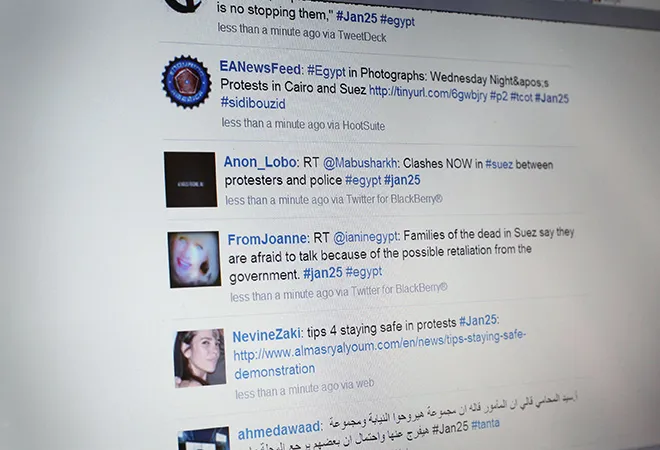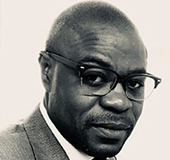
Last April, ahead of an ominous vote in parliament, the prime minister of the West African nation of Mali took to Twitter to break a momentous news: the government has resigned!
Within minutes, also on Twitter, the country’s president informed that he had accepted the resignation.
Much in this series of events was exceptional, except the use of a social media platform.
In fact, Mali’s leaders joined the long list of political leaders in Africa who, in recent years, have used social media platforms as the main conduit of information about their actions. Whereas in the past, politicians used to call press conferences or appear on the State-owned broadcaster’s to share their plans, in modern day African politics, Twitter and Facebook serve as the main platforms for key political moments.
Africa has an estimated 1.3 billion inhabitants. Less than 500 million among them are internet users and some 200 million use social media; increasingly so to take part in political debates.
The trend on the continent started almost a decade ago, as the continent experienced a social media boom. In September 2010, Goodluck Jonathan, then the incumbent President of Nigeria, announced his candidacy on Facebook, reaching hundreds of thousands within minutes.
Social media has largely been considered as the engine that fueled the weeks protests toppled the government in Tunisia in January 2011 and launched the Arab Spring.
By the time of his announcement, President Jonathan had, in just a few months, amassed a Facebook following greater than the combined tally of the UK prime minister, the German Chancellor and South Africa’s President. CNN had dubbed him “the Facebook President.”
Social media has largely been considered as the engine that fueled the weeks protests toppled the government in Tunisia in January 2011 and launched the Arab Spring.
The good..
Over the past decade, candidates for public office, political parties, electoral commissions, and political activists and commentators have used social media platforms to engage with voters, seek for their votes, and keep the political conversation going. The upsides have been many:
Larger and faster audiences — Through Facebook and Twitter, candidates and holders of public office across Africa have come to enjoy a larger and faster reach. Audience are literally at their fingertips.
Last year, during presidential and legislative elections in the Democratic Republic of the Congo — a country larger than Western Europe — social media platforms proved the most practical way to reach out to over 40 million voters.
Arguably, without Twitter and Facebook, reaching out to the millions of people they were able to engage with would have been impossible.
Direct interactions — For most candidates for public office in Africa, social media platforms have made it easier to interact with voters.
In countries where State-owned media — often the only ones with the largest audiences — have usually favoured candidates from the party in power, for the other candidates, social media became the main and often the most efficient conduit.
Their success is such that ahead of elections, discussions over equal access to public media have been mooted as opposition candidates shun State-owned media and dedicate resources to their social media operations.
Platforms for activism — In addition to politicians, civil society activists have been using social media platforms to campaign on critical political issues. Across the continent, they have exposed human rights violations which would have remained hidden otherwise.
On Twitter, Facebook, and WhatsApp, they have kept important political conversations at the forefront. In North Africa, the Arab spring was spurred, in no small part, by their use of these platforms.
In countries where State-owned media — often the only ones with the largest audiences — have usually favoured candidates from the party in power, for the other candidates, social media became the main and often the most efficient conduit.
Social media played a role in every single political uprising of the past decade in Africa.
Indeed in 2015, a report analysed 1.6 billion tweets in Africa and found that politics-related tweets were on the rise and topped the rates of political tweets in the US and the UK.
The bad..
While more people in Africa are gaining access to the internet each year — and the majority use their access on social media usually from mobile phones — major hurdles contribute to making their political engagement on those platforms difficult.
High cost of access to internet — By nearly all measures, it costs more to access the internet in most of Africa than elsewhere in the world.
One recent report puts the price of monthly broadband internet in Burkina Faso, a West African country, at nearly $1,000. The same service is available in Iran for less than $6.
Similarly, urban areas in Africa, studies have shown, have a greater access to internet than rural areas. Some have therefore noted that the use of social media in politics does, in effect, widen the democratic divide between those with financial means and the others, as well as between those living in cities and those living in rural areas.
Internet taxes — In Benin, Tanzania, and Kenya, plans to introduce internet taxes (officially to combat criminal activities online) have added to the fears that many more people would be excluded from the online political conversation. In Uganda, such plans have been enacted.
While more people in Africa are gaining access to the internet each year — and the majority use their access on social media usually from mobile phones — major hurdles contribute to making their political engagement on those platforms difficult.
The ugly..
Human rights advocates note that in reaction to the changing political dynamics created by the use of social media in Africa, a number of governments are adopting a more radical approach.
Surveillance and repression — As social media became one of the most effective tool of political mobilisation, authorities in a number of African countries have turned to increase surveillance of online communications, detections of online critics, complete shutdown and takedown of platforms.
In Nigeria, the State of Internet Freedom noted, a significant spike in the number of online critics of government arrested was recorded between 2016 and 2018.
Online hate speech and disinformation — It has been said that social media prizes the emotional over reason. “The more visceral the message, the more quickly it circulates,” a writer for the US website Politico once aptly noted.
In African politics, the assessment holds as well. In social media, hate speech and disinformation in politics have found new platforms.
As social media became one of the most effective tool of political mobilisation, authorities in a number of African countries have turned to increase surveillance of online communications, detections of online critics, complete shutdown and takedown of platforms.
What’s next?
Since the wave of independence in the 1960s, few developments have so profoundly transformed Africa’s political landscape.
In the 1990s, the rise of multiparty elections opened an era of competitive politics leading to an unprecedented number of electoral contests. Never before had so many people in Africa had a say in choosing their leaders. The trend persists to these days.
As significant as the surge of multiparty politics has been, the decade since a social media boom started in Africa is driving even more transformations of the continent’s political field.
Social media platforms have renewed political engagement, revived critical conversations, and fueled revolutions. As internet penetration in Africa continues to grow, it is obvious that continent’s political landscape must brace for more disruptions.
André-Michel Essoungou has written extensively on the political use of social media in Africa over the past decade. He works for the United Nations.
The views expressed above belong to the author(s). ORF research and analyses now available on Telegram! Click here to access our curated content — blogs, longforms and interviews.




 PREV
PREV


